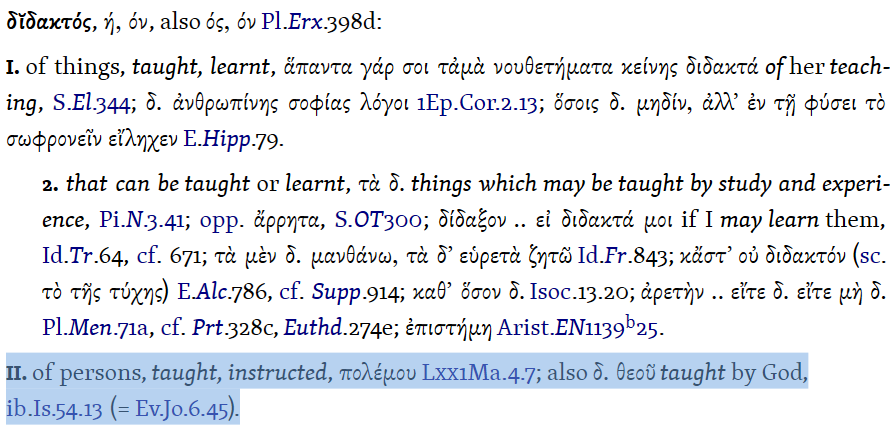The Liddell-Scott-Jones dictionary (Ninth Edition, p. 421) states unambiguously that the phrase διδακτοὶ τοῦ θεοῦ should be translated as "taught by God." They also reference Isaiah 54:13.

In Classical Ancient Greek, verbs that denote knowing, learning, etc. take the genitive for what we would consider their direct objects. This would tend to support the reading "learned about God." However, the Greek construction διδακτοὶ τοῦ θεοῦ is obviously meant to be a direct translation of the Hebrew לִמּוּדֵי יְהוָה. Therefore, the phrase must have the same meaning as the one found in Isaiah, and so this becomes a question about Hebrew syntax rather than about Greek syntax.
Now, just taking לִמּוּדֵי to be a noun, it must mean "pupil", "disciple" (Ernest Klein, A Comprehensive Dictionary of the Hebrew Language, p. 302), and the most obvious reading of יְהוָה would be to take it as the genitive depending on the preceding noun, producing for לִמּוּדֵי יְהוָה the translation "disciples of JHWH." An equivalent translation of this would be "those taught by God," but not "those taught about God." I think this satisfactorily explains the translation suggested by Liddell-Scott-Jones.
